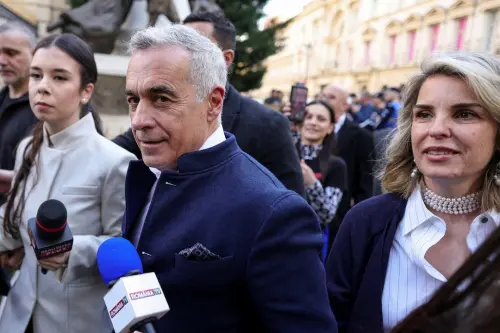Romania's central election authority prohibited far-right pro-Russian candidate Calin Georgescu from participating in the upcoming presidential election re-run in May, a move that is expected to exacerbate a constitutional crisis within the European Union and NATO member.
The cancellation of the presidential election last December, due to suspicions of Russian interference in favor of Georgescu, has positioned Romania at the center of a disagreement between the U.S. administration and European nations regarding the interpretation of democratic principles.
The election authority justified its decision, explaining that the Constitutional Court had invalidated the previous election as Georgescu had failed to adhere to electoral regulations, stating, "It is unacceptable to permit the same candidate to run again when rerunning the election."
Georgescu, who unexpectedly led the previous year's election, criticized the cancellation as an infringement on freedom of expression and political opposition by European governments.
Although tech billionaire Musk criticized the decision as "crazy," this has strained the relationship between transatlantic allies further, especially after recent shifts in White House policy towards Ukraine.
Georgescu expressed his discontent on social media, labeling the situation as "a direct blow to democracy worldwide,” and accusing Europe of becoming a dictatorship while alleging Romania to be under tyranny.
The election authority's decision, backed by a 10-4 vote, rejecting Georgescu's candidacy can be contested in the constitutional court.
In response to the decision, Georgescu's supporters protested outside the election authority, leading to clashes with police, who used tear gas to disperse the crowd.
Georgescu, who faces criminal charges, including ties to a fascist group and providing false information about campaign funding, has maintained his innocence and plans to challenge the election authority's ruling.
